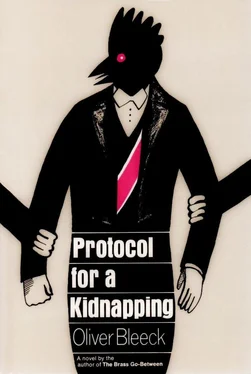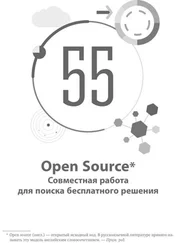“I’d find it strange if many did it, but not one.”
“He has no politics. If you wish to get a message to me, leave it with him.”
“It’ll probably be a few days,” I said.
“It must be no longer than that.”
“You’re in a hurry?”
Tavro produced a cigarette and carefully turned it in his big fingers before lighting it. “I assume that you know who I was at one time and what post I held?”
I nodded. “Confidential assistant to the head of your secret police. I don’t remember what they call it.”
“They call it the UDBA,” he said. “I was accused, whether justly or unjustly is of no matter now, along with Vice-President Rankovic and removed from my post. For the past several years I have done little. I have read a great deal, something I never had time for before, and I have raised some fine flowers — do you care for flowers, Mr. St. Ives, for roses, especially?”
“Roses are fine,” I said.
“I have been exceptionally fortunate with mine. But to continue, I have lived these past few years, except for the surveillance which is now only cursory, much as a man in exile might live. I have few friends, none of them in government. My family is scattered, my wife is dead. So I thought that I had been forgotten, as a deposed politician should be. I was mistaken.”
“How?”
“There are those who want the information I have. At first they tried to persuade me. I refused. Then they threatened me and—” He spread his hands. “I believed them.”
“So you went to see Killingsworth,” I said.
“Yes. A fatuous man, but still shrewd enough not to offer me help unless I first gave him the information — one hundred and two pages of it.”
“And then he got kidnapped,” I said.
“Yes,” Tavro said, nodding a little cynically. “Kidnapped. Convenient wasn’t it?”
“I wouldn’t know,” I said. “How long do you think you have?”
“Before what?”
“Before whoever wants you to give them that information carries out their threat — whatever it is.”
“The threat, Mr. St. Ives, is that they will kill me. I have every reason to believe them.”
I nodded. “All right. How long do you have?”
He shrugged. “Five days, possibly six.” He gestured almost apologetically. “There is no set deadline.”
“That’s still cutting it thin,” I said.
“Yes, Mr. St. Ives, it is. You have only a few hours to come up with a successful plan. However, there is one consolation.”
“What?”
He rose, leaned toward me over the table, and smiled unpleasantly. It may have been the only way he could smile. “If the plan that you devise in these next few days and hours fails,” he said, “it is entirely possible that you will have several years of solitude to determine why it did. Laku noc .”
At eight the next morning there was a call from Arrie Tonzi who said that she was downstairs with a mumbled name who was the embassy’s press or public affairs attaché and that they were on their way up. I immediately ordered coffee and then went into the bathroom and by the time I came out they were knocking at the door.
“You’re early, aren’t you?” I said as she came in wearing a blue dress whose skirt was even shorter than the one she’d worn the day before. I noticed that she still dragged the long suede coat.
“Not really,” she said, picking out a chair and crossing her legs before she sank into it. “The normal Yugoslav workday is seven till two. Philip St. Ives, Gordon Lehmann. Gordon’s the public affairs attaché.”
I shook hands with a middling-tall man in his late twenties whose shy, pleasant face looked far too honest for him ever to do well in public relations. “I’ve got fifty reporters in town yelling for a statement and I haven’t got anything to tell them,” he said. “All we can get out of Washington is to check with you.”
“They’ve got the ransom demand, haven’t they?” I said.
“They’ve already milked that dry. They want to talk to the go-between.”
“Can’t they get something out of Anton Pernik?”
“He won’t talk to them. Or at least that’s what the four government cops who’re guarding his apartment say.”
“Have they issued any statement?”
“The government?”
I nodded and Lehmann said, “Only a new version about how for humanitarian reasons and to maintain the excellent relations that they enjoy with the U.S. government they will release Pernik from protective custody et cetera and so on.”
“You’d better throw them a fish.”
“How?” he said.
I turned to Arrie Tonzi. “What time’s my appointment with the guy at the Ministry of Interior?”
“With Bartak? At eleven.”
I looked at Lehmann. “Why don’t you set up a press conference for me here at the hotel at half past noon?”
“You really want to talk to them?” he said and I was sure then that his honesty would forever bar him from the big time which might be too bad for the country, if not for him.
“No,” I said, “I don’t want to talk to them, but I’ll have to eventually and I’d rather choose the time than have a couple of them pop up from behind the hedgerow just as I’m handing Pernik over for the ambassador.”
He nodded and then asked, “Have you heard from the kidnappers?”
“We’d also better get the rules straight,” I said. “If I hear from the kidnappers, I may or may not decide to tell you about it. It depends entirely on what kind of proposal they make. This is going to be a tricky exchange because it involves not only three persons, but also a million dollars. When I accepted this assignment in Washington, I was assured that I would be in full charge. If I still am, then I’ll have to run it my way.”
It was a pompous little speech full of lies and distortions, with only a kernel or two of truth, and I was sorry that I had to feed it to Lehmann who seemed like a decent enough person, the kind who should be teaching journalism at some state university, but it contained a lot of what I was going to give the press so I had to see how well it went down. It went down so well that I thought Lehmann might lick his lips for more.
He had a long, slender head that he nodded at me now, almost eagerly, as if trying to show how anxious he was to cooperate. “We’ve been told to give you what you need,” he said, “but if you could talk to the press and explain why the negotiations have to be kept under wraps, it would certainly be a relief to me.”
“Fine, then set it up for twelve thirty and I’ll give them what I can.”
“I’ll get right on it.”
“There’s another thing,” I told him and after he asked what, I said, “When the kidnappers sent their original ransom demand, how’d they do it?”
“It was a phone call to the embassy.”
“Not to Killingsworth’s wife?”
“No, she’s been pretty much kept out of it.”
“Good.”
“Is that what you’re expecting, a phone call?” Lehmann asked.
“I don’t care what it is as long as I hear from them.”
“When do you think that’ll be?”
“I don’t know.”
“Have you set any deadline?”
“Yes.”
“When is it?”
I smiled at him. “It’s when I start worrying because I haven’t heard from them.”
After calling Knight and asking him and Wisdom to monitor the press conference, I let Arrie Tonzi watch me eat a skimpy breakfast in the hotel dining room while she had some more coffee. The Yugoslavs, I found, aren’t at all keen about breakfast.
“You’re different this morning,” she said.
“How?”
“You seem to know what you’re doing.”
“You mean I didn’t yesterday?”
Читать дальше












